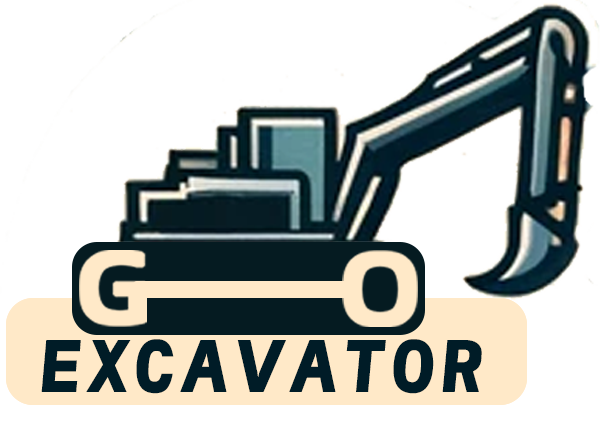
Article directory
Key Techniques in Mini Excavator Handling
Post-Operation and Maintenance
Ensuring safety while managing these powerful machines is critical to prevent accidents and enhance efficiency. Whether you are a seasoned operator or new to the field, adhering to safety protocols is non-negotiable. Here’s how you can handle mini excavators with utmost caution and precision.
Understand the Operation Basics
Before you even turn the ignition key, familiarize yourself with the specific model of mini excavator you will be operating. Each machine might have unique features and controls, so understanding these differences is crucial.
Pre-Operation Checklist
Start each day or shift with a thorough check of the mini excavator. Inspect the hydraulic system, engine oil level, and the condition of the tracks or wheels. Ensure that all safety features, such as seat belts and the rollover protection structure (ROPS), are intact and functional.
Familiarizing With Controls
Spend time getting to know the controls of your mini excavator. Manufacturers often have slightly different control setups or symbols. Knowing exactly how to operate the boom, arm, and bucket can prevent improper handling, which is a common cause of accidents.

Key Techniques in Mini Excavator Handling
Operating a mini excavator requires more than just moving dirt. It involves precise control and situational awareness to ensure safety and efficiency.
Smooth Operation
Operate the controls smoothly. Jerky movements can destabilize the mini excavator, especially when working on uneven terrain. Smooth operation reduces wear and tear on the hydraulic systems.
Proper Positioning
Always position the mini excavator on a stable, even surface before beginning any digging. If you must work on a slope, position the machine so that it moves up or down the slope, rather than across it, to minimize the risk of tipping over.
Maximizing Safety During Excavation
When you begin to dig, your approach should prioritize safety and efficiency. Here’s how you can ensure both:
Depth and Precision
Be mindful of the depth you are digging. Always be aware of any underground utilities or structures that could be affected by your excavation. Use the correct attachments and buckets to achieve the desired depth and precision for your project.
Visibility and Communication
Maintain good visibility around the worksite. Keep the area around the mini excavator clear of debris and bystanders. Use signaling or communication tools to coordinate with ground workers, ensuring they are aware of your movements and operations.

Post-Operation and Maintenance
After the day’s work, taking care of your mini excavator can extend its lifespan and ensure it’s ready for the next job.
Cleaning and Inspection
Clean the mini excavator to remove any dirt or debris that could hide potential issues or damage. Perform a post-operation inspection similar to your pre-operation checklist to catch any problems early.
Regular Maintenance
Adhere to the manufacturer’s maintenance schedule. Regular maintenance, including changing the oil, checking the hydraulic systems, and ensuring the tracks or tires are in good condition, prevents breakdowns and prolongs the life of your mini excavator.
By following these structured approaches to mini excavator operations, you enhance not only your safety but the efficiency and productivity of your projects. Remember, a well-maintained mini excavator is a dependable partner in the field. Make these practices a routine part of your operation, and you will see significant benefits in both the short and long term.
A Comprehensive Guide to Buying a Excavator Second Hand
Purchasing a second-hand excavator can be a cost-effective solution for your construction or landscaping needs. However, buying used machinery comes with its own set of challenges and considerations. This comprehensive guide will walk you through [...]
Comprehensive Guide to Hyundai Mini Excavators: Features and Prices
Mini excavators have become indispensable tools in the construction and landscaping industries. Hyundai Construction Equipment, a global leader in heavy machinery, offers a range of mini excavators known for their reliability, efficiency, and advanced features. [...]
How to Extend the Service Life of Excavator Parts
Excavators are indispensable machines in the construction and mining industries. They perform heavy-duty tasks that demand robust components and meticulous maintenance. Extending the service life of excavator parts not only reduces operational costs but enhances [...]
Kymron Excavators: Innovative, Sustainable Construction Machinery
In the dynamic world of construction and heavy machinery, Kymron has emerged as a game-changer. Specializing in advanced excavator technology, Kymron is redefining industry standards with its commitment to innovation, efficiency, and sustainability. Company Overview [...]
Bulldozer vs. Wheeled Excavator: Which Machine is Better for Moving Soil?
Moving soil is a fundamental task in construction, landscaping, and earthmoving projects. Choosing the right machinery for the job can significantly impact efficiency, cost, and project timelines. Two of the most commonly used machines for [...]
Why Are Small Excavators Favored? A Comprehensive Guide
In the world of construction and landscaping, efficiency and versatility are key. Among the myriad of machinery available, small excavators have risen in popularity. But what makes them so favored? Introduction to Small Excavators Small [...]




